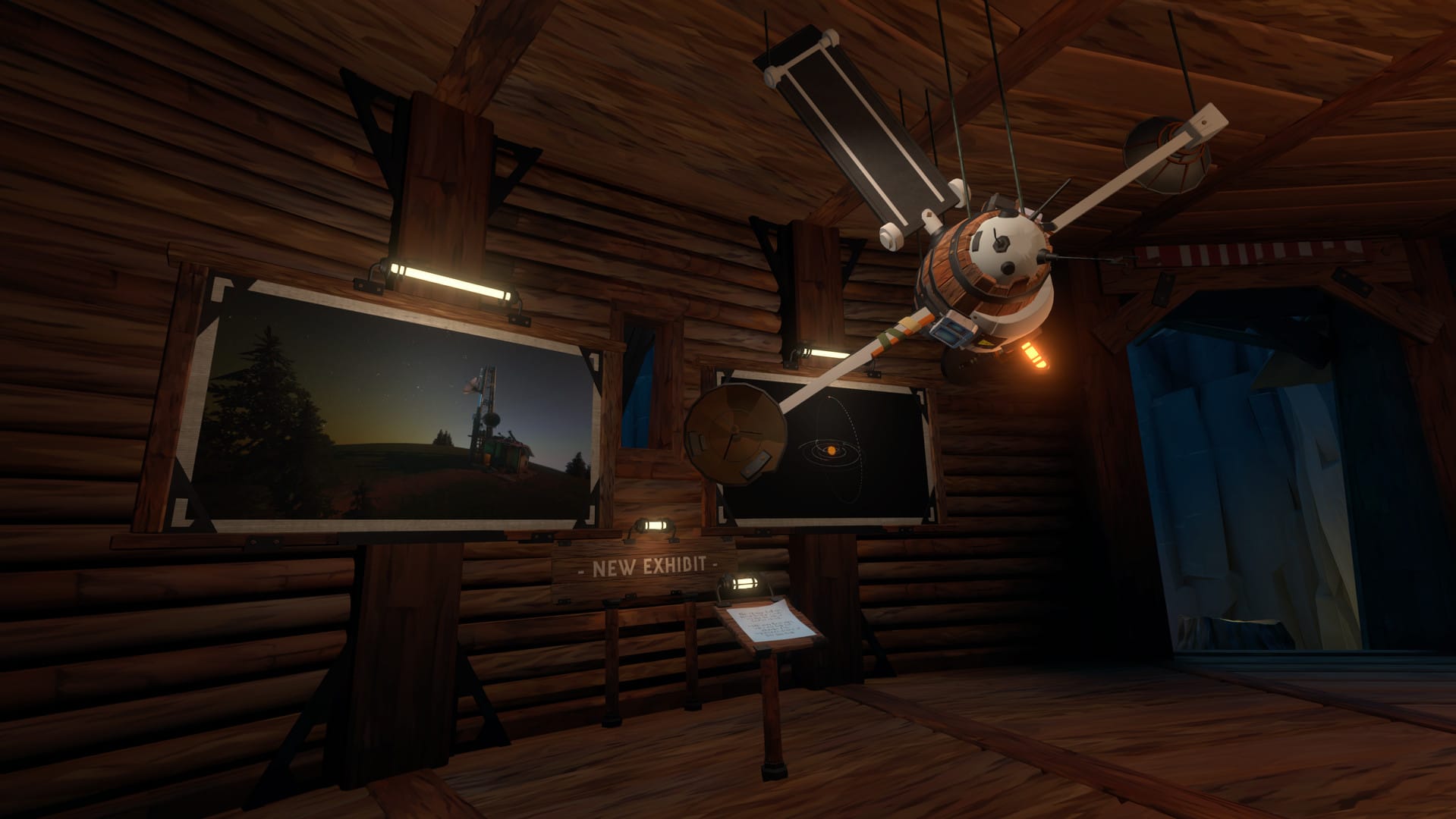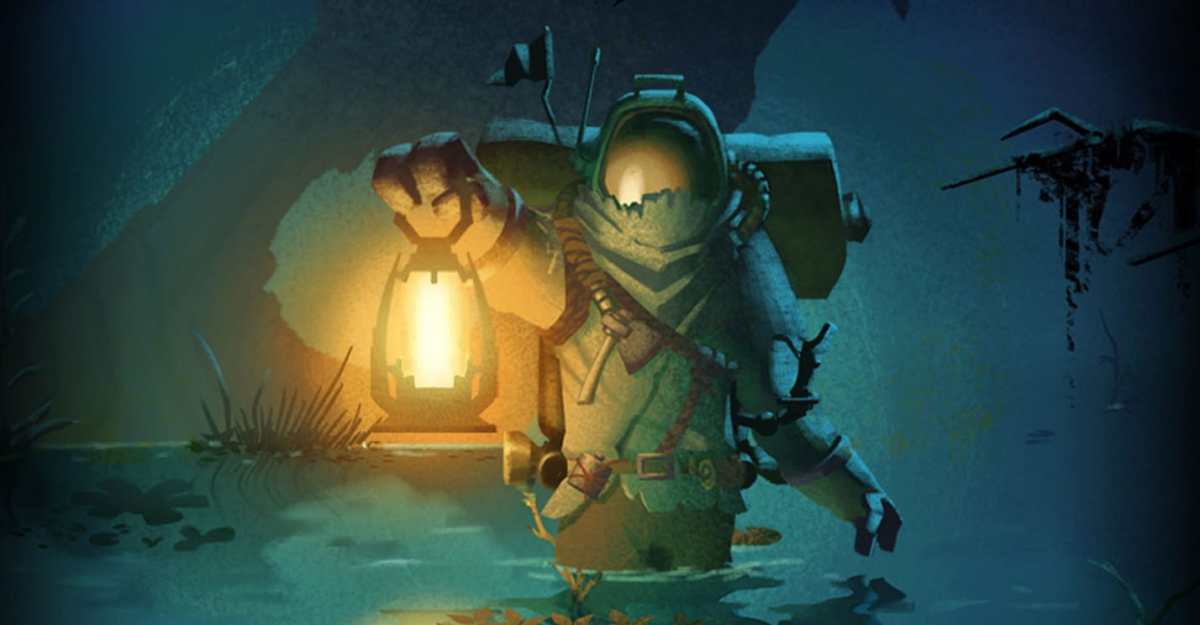Before jumping into Outer Wilds: Echoes of the Eye, I wasn’t quite sure what to expect. The original 2019 game from Mobius Digital is pretty much as perfect of a game as you can get in my book — an expert blend of powerful exploration, fascinating archaeological mysteries, smart puzzle design, and a satisfying conclusion that all gelled together with one of my all-time favorite soundtracks to create a generational experience. What could possibly be added to this small pocket galaxy that wouldn’t disrupt the incredible balance of the whole thing?
Well, it turns out there’s a reason that Mobius is making the games and I’m just playing them, because Echoes of the Eye is a thrilling, awe-inspiring, and sometimes-terrifying addition to the universe that makes perfect sense inside the story of the original game, while adding new layers to the mystery and highlighting a path that Mobius might be taking for its future projects.
Part of the game’s joy is that feeling of discovery and surprise, so I’ll try to keep spoilers to a minimum. Outer Wilds: Echoes of the Eye is framed around a new exhibit that pops up at your local Timber Hearth museum, one that leads you to the strange discovery of a massive object out in space that seems to be visible one moment and then vanish the next. You know, typical Outer Wilds stuff.
Suffice to say, you eventually make your way to this object to discover that it’s actually something else entirely. The first time I stepped foot on it, I let out an audible gasp. The setting is easily the biggest and most complex in Outer Wilds’ solar system, and the second you see this new playground, you’ll get a sense for the kinds of challenges that are packed in this 7-hour adventure.
Like the core game, Echoes of the Eye does an excellent job of sticking to the “show, don’t tell” rule of game design and storytelling. Careful observation and the cobbling together of environmental context clues are pretty much all you need to solve the puzzles that are thrown your way. Like the Hourglass Twins and Brittle Hollow, there’s a core mechanic to this new location that makes it clear that certain places can only be explored early on in the 22-minute cycle, while others are only accessible near the tail end of the loop. Finally wrapping my head around the nuances of this transformation and how it impacted nearly every part of the world was immensely satisfying.
While the story of Outer Wilds’ main game was gleaned through translating ancient texts scattered throughout the cosmos and creating your own mental timeline of events, Echoes of the Eye unravels its tale through an array of slideshow photographs that you discover and view through devices that resemble the Kodak Carousel. This nostalgic device already has a firm place in popular culture, whether it be through the scares of Stephen King’s It or the iconic speech given by Don Draper in Mad Men. Echoes of the Eye uses these small pieces of time forgotten in a way that feels like a mix of the two and contains just the same powerful “aha!” moments found in the core game.
Stephen King’s It is a particularly apt comparison, considering that the first thing you see when you boot Outer Wilds: Echoes of the Eye up is a content warning about the level of scares in the new content, as well as the option to “Reduce Frights” in the menu. However, if you made it through the Dark Bramble in one piece, you should be able to handle these new things that go bump in the night, especially once you discover their true purpose in the grand scheme of things.
If there’s one thing that Echoes of the Eye is missing compared to the rest of the Outer Wilds, it’s that sense of going wherever the wind might take you. In the core game, I loved spending a bit of time on one planet, getting stuck on a tricky puzzle, and then just jetting off to another world to see if I could make any progress over there. This act of cosmic ping-pong made it feel like I was cross-stitching my way across the galaxy and alleviated any sort of frustration that came from not being able to immediately figure out a particular solution. It’s like leaving your house in the evening without any concrete plans and just seeing where the night takes you.

To the contrary, Echoes of the Eye’s focus on this one massive-but-centralized location very much has you setting your plans in stone. The location for the DLC is so singular that, despite existing in the same solar system as the rest of the game, it truly does feel like its own thing. Aside from the opening minute or two it takes to get to the new location, your cobbled-together spacecraft isn’t really used throughout this journey, which is a blessing or a bummer depending on how you felt about the flight mechanics of the core game.
But by having this new story be focused and centralized, Mobius is able to introduce a new group of characters, give them a wonderfully fleshed-out backstory, and weave their tale into the core mystery of the sun going supernova every 22 minutes in a really excellent fashion. I’m not sure how it will flow if someone comes to Outer Wilds + Echoes of the Eye completely new to the game, but for me, it’s just another piece of the phenomenal puzzle.
Outer Wilds is as confident of a game as I can think of. It’s confident in its simple mechanics, confident in its impactful story, and confident in how the experience all gels together. It also reflects that confidence back to the player, giving us just the right amount of breadcrumbs needed to find our own way out of the woods. And so, it’s fitting that Echoes of the Eye exudes that same level of confidence to mix up the formula, take us to an unexpected new location, and challenge us in ways that the original game didn’t. It’s so much more than just “more Outer Wilds,” and it has me thrilled to see what Mobius Digital does next.






Published: Oct 2, 2021 05:12 pm